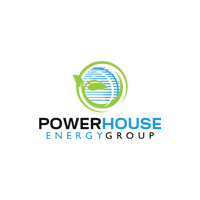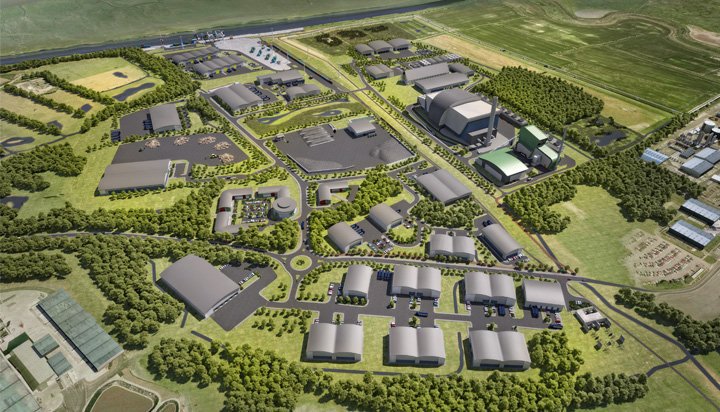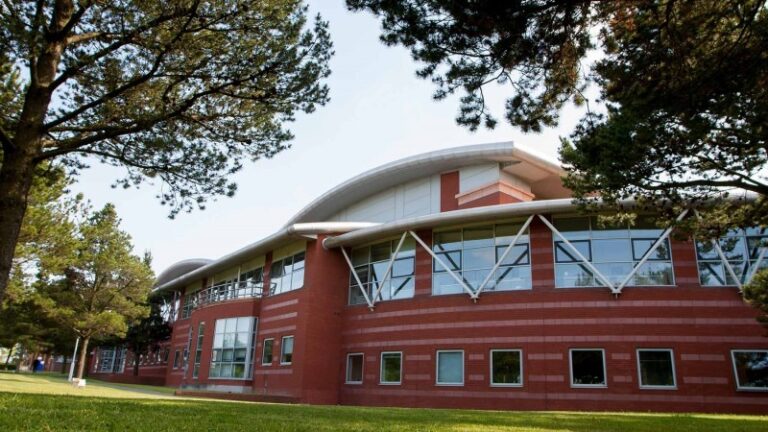PowerHouse Energy Group (LON: PHE), the UK technology company commercialising hydrogen production from waste plastic, announced today its unaudited interim results for the six months ended 30th June 2019.
H1 2019 Highlights
Operational
- Signature of agreement for Peel/W2T to develop a site on Peel’s Protos Energy park in Cheshire as a 35 tonnes per day facility generating electricity and hydrogen.
- Initiation of engineering and development design on Protos site for planning and permit submission in readiness for next stage of engineering leading to financial close.
- Engagement in successful community engagement and council briefings for Peel Environmental, Protos’ site owners.
- The laboratory scale unit became operational and added to Research Demonstrator capability. Company commenced offering third party feedstock testing, laboratory services and consulting services with a short-term plan for operations to become cash positive.
- Appointment of David Ryan as CEO, providing strong leadership and clear direction for Company to secure sales, provide engineering and delivery and operational services.
Financial
- Expenditure in R&D now significantly reduced and other costs brought under tighter control
- Management focussed on project activities associated with first application and other early commercial delivery priorities.
- Funding engagement for pipeline of projects being led by Peel Environmental and Waste2Tricity (W2T).
- Company started first paid engineering consultancy work. The revenue is expected to be recognised in forthcoming accounting period.
Post- Period Highlights
- Signature of collaboration contract with Peel to develop ten further sites.
- Pipeline of opportunities now being developed to mature second and third project to planning stage.
- Waste regeneration design capacity at Protos upgraded:
- regenerating 35 tonnes per day of waste plastics
- producing 3.8MWe on site and exporting 3.4MWe; and
- up to 2 tonnes of hydrogen per day, with some reduction in exported power
- Planning submission completed by Peel for Protos site.
- Efforts now moving on to identification, planning and permitting for follow on sites
- In negotiation with overseas entities for exclusive regional representation.
Chairman’s Statement
Introduction
PowerHouse Energy has made further significant progress to commercial operation with the announcement of the proposed development on the Peel Environmental Protos Energy Park and the submission by Peel of the planning permission application.
Our strategy
PowerHouse Energy (PHE) strategy is the design, delivery and licensing of plastic regeneration processes to generate clean low emission energy. The Company’s process, Distributed Modular Generation (DMG®), regenerates non-recyclable waste plastic to produce clean syngas for use as:
· replacement for natural gas
· source of hydrogen for fuel cell powered road transport
· in community based distributed power generation
· feedstock in other applications in the chemicals and plastics industries
PHE will sell the process modules, with associated paid services for engineering, licensing and operational support. In addition to DMG® sales and licensing, revenues will be generated by the delivery of technical services, through consulting, pre-sales and support of operations. Furthermore, the company offers customers testing, analysis of different waste feedstocks and also engineering development of solutions in low-carbon energy using the Research Demonstrator and laboratory analysis equipment located at the University of Chester’s Thornton Science Park.
Our customers will include project developers and asset owners, waste management companies, material recovery facilities, and community and council operations worldwide.
The Company’s principal assets are the design, chemical engineering models and intellectual property defining the key elements of our DMG® technology, augmented by the Research Demonstrator and laboratory testing equipment currently located at Thornton Science Park.
Contract Sales
During the period, Peel Environmental and W2T announced the development of the first commercial operation at the Peel Environmental Protos Energy Park development. The site is at the heart of the North West Hydrogen Hub and Peel envisions more developments with W2T to roll out the technology in the region.
The Protos site has near term potential for taking plastic from local users and supplying them with electricity and this factor has driven W2T and Peel to give precedence in developing this site.
Subsequent to the period end PHE, W2T and Peel have agreed to collaborate to build a further ten projects to follow on the first site.
The initial contract for PHE was to commence design, planning and permitting activities and, subject to financial close, the design, supply and licence of the first operational DMG® process.
Business Development and Sales Pipeline
The Company is in discussions with customers in the UK and internationally to sell its DMG® process with capacities between 25 and 40 tonnes per day of non-recyclable plastic and tyre waste and to generate energy in the form of hydrogen, syngas for industrial consumption and community power.
The pipeline of UK sales opportunities has been augmented by the signature of the 10 site collaboration contract with Peel. The pipeline of other opportunities includes waste management companies, local councils and now industrial users who want to replace the natural gas currently used in their processes with syngas generated from their waste.
With completion of the initial stage work for the Protos site, the application engineering will now focus on moving other customers through to a commitment to engineering development.
International interest in the DMG® technology continues to grow, aided by media engagement, such as recent documentary features on BBC and CNN. The Company is currently negotiating with several overseas parties to act as regional technical licensing partners for DMG® technology.
Technology Development
During the period, the Company has worked on the technology development programme agreed with DNV-GL, the technology certification company, and this has helped design engineering and modelling. As a result of this design, and consulting assignments in Spain producing new empirical data, the Company upgraded production design capacity at the Protos site to 35 tonnes per day waste to produce up to 3.8MWe on site and produce up to 2 tonnes of hydrogen gas for fuel cell vehicles. This 40% increase in production was achieved with only a marginal cost increase to customers’ installation costs.
The Intellectual Property protection programme continued through the half year and an initial development of the family of patents is now complete, with statements of invention and claims submitted to the Patent Office and under scrutiny. The Company will incorporate more specific IP arising from the detailed design into further depth in the family of patents.
Financial
The Engineering Design Services contract for Protos, signed in the period, has initiated the first revenue generation for the Company, with income recognition and contract payments to follow later in the year. The Company intends to raise further revenues from feedstock testing for other customers.
The Company is carefully managing expenditures and is budgeting to match expenditures against expected revenues. There is no material effect on the advancement of development projects as these are being funded by customers and the bulk of technology definition has been accomplished with the design completion work in 2018. Subsequent to the reporting period, the Company received research and development tax reimbursements for 2017 and will expect similar refunds for 2018.
We note that the Company’s share price has not changed markedly in the period. However, the Board is confident that the Company’s recent engagement in paid engineering and external research and testing for customers is leading to a position where a significant proportion of the operational costs and Company overhead will be covered. The financial situation is eased by consultants and service providers having agreed to payments in equity. The funding of the first DMG process, and initiation of development work on customer sites in the coming months, together with agreements with international partners for DMG® technology will have a positive effect on the value in PowerHouse. The Board is confident in the future of the Company and its members have all made financial commitments in waiving fees to achieve this vision.
The Board appreciates the continued support of PHE’s shareholders and is making every effort to repay your confidence in the Company and its future.
Dr. Cameron Davies
Non-Executive Chairman








































